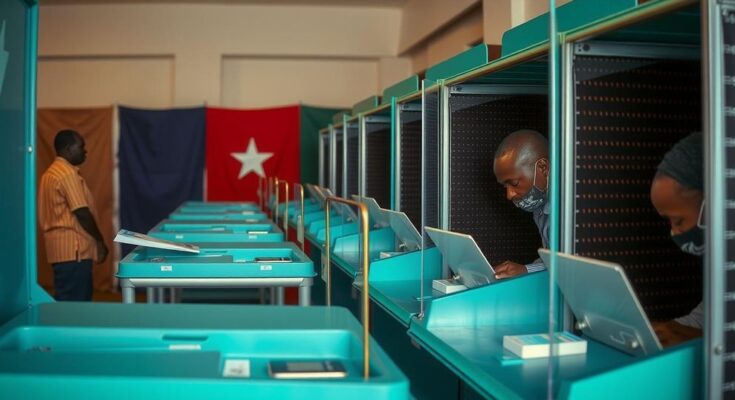Ghana has opened polls for its general election amid a significant economic crisis. Approximately 18.7 million voters are expected to participate, with two main candidates providing little hope for transformative change. This election is critical as Ghana has faced rising inflation and unemployment, challenging its prior reputation as a democratic leader in West Africa.
On Saturday, polls opened in Ghana for a general election, a significant event amid an ongoing economic crisis. With approximately 18.7 million registered voters participating in the presidential and legislative elections, this election is expected to serve as a critical indicator of the state of democracy in a region besieged by extremist violence and political instability. Despite the historical reputation of Ghana as a beacon of democracy, the two leading candidates appear to offer limited prospects for meaningful change. The nation has been grappling with severe economic challenges, characterized by escalating inflation and widespread unemployment.
Ghana, once celebrated as a model of democracy in West Africa, finds itself in a precarious position as it heads into this election. The country is currently facing a dire economic situation, marked by rising inflation and decreased job opportunities. In a context where many nations in the region are experiencing political turmoil, including coups and extremist attacks, the forthcoming elections are crucial for assessing the strength of Ghana’s democratic institutions and electoral processes. The performance and engagement of the electorate will be closely monitored.
In conclusion, as Ghana conducts its general elections, the nation stands at a crossroads. With millions of citizens eligible to vote and significant economic hardships affecting their livelihoods, the outcome of this election is poised to influence not only Ghana’s immediate future but also its standing as a democratic example in a tumultuous region. The limited options presented by the main candidates might reflect broader concerns about governance and the ability to foster real change.
Original Source: abcnews.go.com




